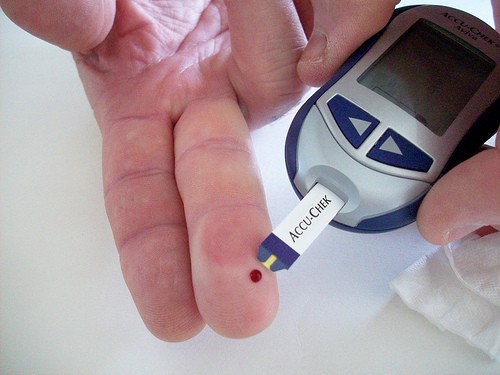
Diabetic patients are at a greater risk of developing brain diseases. A new research from US said that dementia may be one of the end stages of diabetes.
Alzheimer's disease is a brain disorder that leads to the destruction of memory and other important functions of the brain including thinking, communication and behaviour. It is one of the most common causes of dementia.
The Albany University study found that high levels of insulin involved with type 2 diabetes enters the brain, disturbs functions of important chemicals, leading to the formation of protein plaques and tangles, and finally damages brain cells, The Times of India reported.
"People who develop diabetes have to realise this is about more than controlling their weight or diet. It's also the first step on the road to cognitive decline," Professor Ewan McNay, who was involved with the study, told Daily Mail. "At first they won't be able to keep up with their kids playing games, but in 30 years' time they may not even recognise them."
The findings are based on the experiments conducted by researchers on rats. During the study, the rats were put on a high fat diet to develop type 2 diabetes. The rodents also underwent tests to measure memory skills. They exhibited a decline in memory and cognitive skills, with each progress in the disease. Researchers also detected in the animals' brain a larger accumulation of beta-amyloid - the toxic proteins that lead to Alzheimer's disease.
In normal circumstances, an enzyme helps deal with the insulin that reaches the brain, by breaking down the amyloid. However, high levels of insulin involved with type 2 diabetes often become successful in overpowering the enzyme, disturbing the whole process. "High levels of insulin swamp this enzyme so that it stops breaking down amyloid," said McNay. "The latter then accumulates until it forms toxic clumps that poison brain cells. It's the same amyloid build-up to blame in both diseases - T2 diabetics really do have low-level Alzheimer's."
Type 1 diabetes occurs when pancreatic cells (produce hormone insulin that regulates blood sugar in the body) are destroyed by immune system of the body. Type 1 diabetes requires daily insulin injections to survive. In Type 2 diabetes, the body develops resistance to insulin. Type 2 diabetes normally affects people aged 40 or above. According to a 2012 report, nearly 62 million Indians are diabetic and nearly 44 lakh Indians, aged between 20 and 79, are unaware that they are diabetic. The disease claimed nearly 10 lakh lives in 2011. If left untreated or undiagnosed, diabetes can increase the risk of cardiovascular diseases (strokes, heart attack), cause damages to the kidney, eye, nerve, foot, and lead to cancer.














